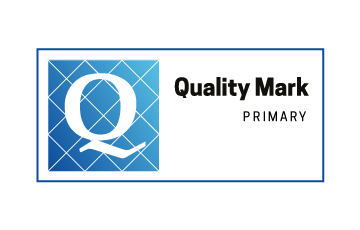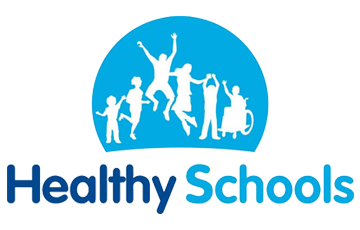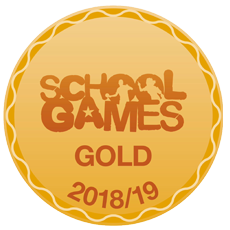Science
Science Curriculum Statement

“The important thing is not to stop questioning.”
Albert Einstein - one of the greatest and most influential physicists of all time.
Intent
At Crow Orchard Primary School we encourage children to explore their curiosities and theories relating to Science. We strive to incorporate Science across the curriculum, linking themes from other topics or organised days, events and trips linking to is subject. Our curriculum aims to broaden the children's scientific view of, and respect for the world around them, whilst promoting a love for enquiry and a desire for exploring new things. Our main aim is to develop children’s knowledge, skills, and understanding, as well as a sense of wonder and enjoyment in Science.
We work with professionals within the STEM industries to promote a positive attitude towards Science, Technology, Engineering and Maths. We have developed links with The Eden Project in Cornwall and The Tawd Valley Rangers to organise workshops, visitors, trips and events. It is important for the children to understand the various routes and diverse career opportunities within the STEM industries.
We have eight key priorities at Crow Orchard Primary School that underpin every subject area. We believe that by focusing on these key priorities our children will be ready to successfully meet the challenges of the next stage of their education and their lives.
 Implementation
Implementation
What does it look like?
We have begun to use a question based Science curriculum so that all the Science units are now linked to a scientific question that will form a basis for all the work within the unit. This has helped to create a progression document for teachers to follow to embed and cover all the elements of the science curriculum. The knowledge and skills build on year by year to deepen and challenge our learners.
In Early Years and Key Stage 1- pupils experience and observe phenomena and look more closely at the natural and humanly-constructed world around them. They are encouraged to be curious and ask questions about what they notice. They develop their understanding of scientific ideas by using different types of scientific enquiry to answer their own questions, including observing changes over a period of time, noticing patterns, grouping and classifying things, carrying out simple comparative tests, and finding things out using secondary sources of information. Most of the learning about science is done through first-hand practical experiences.
In Lower Key Stage 2 – Years 3 & 4 - pupils broaden their scientific view of the world around them. They do this through exploring, talking about, testing and developing ideas about everyday phenomena and the relationships between living things and familiar environments, and by beginning to develop their ideas about functions, relationships and interactions. They ask their own questions about what they observe and make some decisions about which types of scientific enquiry are likely to be the best ways of answering them. They draw simple conclusions and use some scientific language, first, to talk about and, later, to write about what they have found out. ‘Working scientifically’ should always be referenced and clearly related to Science content in the programme of study. Pupils read and spell scientific vocabulary correctly and with confidence, using their growing word reading and spelling knowledge.
Upper Key Stage 2 – Years 5 & 6 - pupils develop a deeper understanding of a wide range of scientific ideas. They do this through exploring and talking about their ideas; asking their own questions about scientific phenomena; and analysing functions, relationships and interactions more systematically. At upper Key Stage 2, they encounter more abstract ideas and begin to recognise how these ideas help them to understand and predict how the world operates. They also begin to recognise that scientific ideas change and develop over time. They select the most appropriate ways to answer science questions using different types of scientific enquiry, including observing changes over different periods of time, noticing patterns, grouping and classifying things, carrying out comparative and fair tests and finding things out using a wide range of secondary sources of information. Pupils should draw conclusions based on their data and observations, use evidence to justify their ideas, and use their scientific knowledge and understanding to explain their findings. ‘Working and thinking scientifically’ should always be referenced and clearly related to science content in the programme of study. Pupils read, spell and pronounce scientific vocabulary correctly.
Across all key stages, wherever possible, we involve the pupils in practical activities as these increase enthusiasm and motivation and provide first-hand experience. We recognise that there are children of widely different abilities in all classes, so we provide suitable learning opportunities for all children by matching the challenge of the task to the ability of the child. We achieve this in a variety of ways by:
- Setting common tasks which are open-ended and can have a variety of responses.
- Setting tasks of increasing difficulty (not all children complete all tasks).
- Mixed grouping of children helps to lift the lid off learning.
- Providing resources of different complexity.
- Providing challenges designed to allow the children to reflect and think deeper about their learning.
Impact
Teachers assess children’s work in Science by making informal judgements as they observe them during lessons. On completion of a piece of work, the teacher marks the work and comments as necessary. At the end of a unit, the teacher assesses the children against the objectives for that topic. At the end of the year, the teacher makes a summary judgement about the work of each pupil in relation to the skills they have developed in-line with the National Curriculum and these are reported to parents as part of the child’s annual school report. We use this as the basis for assessing the progress of the child and we pass this information on to the next teacher at the end of the year.
The subject champion evaluates the strengths and weaknesses in the subject and indicates areas for further improvement. The science champion also completes ‘book looks’ as well as lesson pop-ins and pupil questioning.
Impact is measured not only by formal results and progress, but also by retention of knowledge and skills, the level of engagement and enjoyment, appropriate use of scientific vocabulary and children's confidence.
Miss E. Baron - Science Subject Champion Key Stage 2
Mrs L. Rostron - Science Subject Champion EYFS and Key Stage 1
.jpg)

 Together
Together



